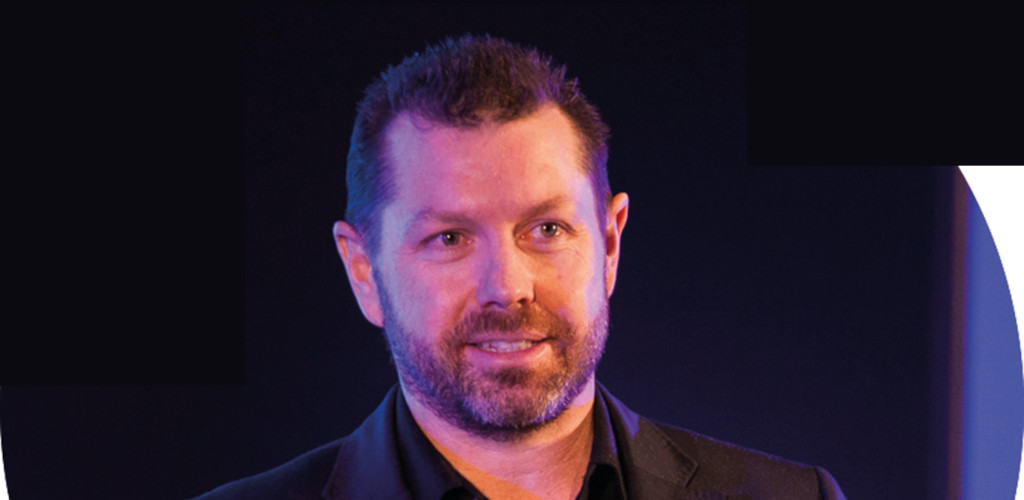GEODIS’ Senior VP Luke Mace Talks Talent, Sustainability

By Carly Fields
From Issue 5 of Breakbulk Magazine.
In a rapidly evolving world, where global project supply chains are constantly shifting and adapting, the role of project cargo forwarders has become more vital than ever. In conversation with Breakbulk, Luke Mace, a seasoned professional in the industry and the global head of project logistics at GEODIS, shared his insights on the challenges, opportunities, and strategies that are shaping the project logistics landscape today.
Mace began by emphasizing a fundamental shift in perspective within the industry: “The focus for us is not so much on ship availability anymore, it is on people. People have become a key challenge.” He highlighted the pandemic-induced paradox of logistics companies outperforming numerous industries amid increased demand yet struggling due to difficulties in remote work and paperwork processing. As he put it, “You needed more staff for the same amount of work.”
The pandemic also exacerbated another longstanding concern — talent retention. Mace explained: “People were just poaching, so you were losing good people between companies and industries.”
He acknowledged that attracting fresh talent to the logistics sector is a global issue and emphasized the need to understand the motivations of the new generation. “The motivations are very different today,” he said, noting that traditional incentives like regular salary and international experience might not be enough.
Reflecting on his own journey, Mace said “old school forwarding and regular salary” motivated him. However, the dynamics have changed, and today’s workforce seeks more than financial stability. “They have much more power in saying what they’ll do as a career versus what I had when I grew up.”
To address the talent shortage and nurture internal growth, Mace is involved in an initiative at GEODIS to train existing employees to become project professionals and leverage their expertise to elevate the company’s capacities. He emphasized the importance of patience and hard work in project logistics, explaining that the exciting aspects of the job come after putting in effort.
Mace was candid about the perception of the logistics industry compared with other sectors. “Is it exciting compared to other sectors? No. Should it be? Absolutely,” he said.
Sustainability Action Needed
Discussing sustainability, Mace noted an increasing focus on environmental concerns in the supply chain industry, particularly in the project logistics sector. Yet, he said, while discussions on sustainability have surged, concrete actions have yet to keep pace.
“As long as there’s no consistency on reporting, then you’re going to have room for creativity,” he said, adding that reporting accurate emissions data is a complex process that requires standardization within the industry. He pointed out that a lack of a unified approach leads to inconsistencies in measurement and reporting.
Mace said that to achieve sustainability goals, companies need to find innovative ways to optimize cargo utilization. “There are smarter ways you can also go about this via cargo utilization,” he said, advocating for more efficient loading practices to reduce wastage.
Addressing the challenge of emissions reporting for breakbulk cargo, Mace highlighted the need for dialogue and collaboration. “Talk to the carriers to understand what the problem is,” he said, acknowledging that achieving consensus is crucial, even if perfection is unattainable.
Amid the evolving landscape, Mace underscored a diversification strategy adopted by GEODIS. He said that the company’s focus has shifted to capital projects, which have experienced a recent rebound.
He highlighted the benefits of diversification, allowing the company to weather market fluctuations more effectively. This approach has ensured stability by focusing on day-to-day business and industries such as resupply, oil and gas, and power, which require regular shipping volumes.
Meanwhile, Mace remained confident in the human element of project logistics, emphasizing that automation cannot replace the human touch. “You just can’t completely automate what we do,” he said, adding that robots cannot entirely replace the execution and problem-solving skills of humans in the project cargo field.
“Our business is built on human interaction – for example the ability to deal with challenges real time out in the field, often with complex operations in environments lacking quality infrastructure. We will continue to invest in practical automation where we can add value, without jeopardizing the quality of operations and the safety of our people.”
The challenge of zero carbon shipping will be the focus of a mainstage panel session at Breakbulk Americas 2023. “The Journey Towards Decarbonization: Progress, Challenges and Opportunities”, moderated by Maersk Project Logistics’ Dennis Devlin and featuring expert speakers from the American Transportation Research Institute, Swire Projects and the US Maritime Administration will take place on September 27 from 4:00pm–4:45pm.
Check out the full main stage agenda for this year’s event, happening on 26-28 September at the George R. Brown Convention Center in Houston, Texas.
